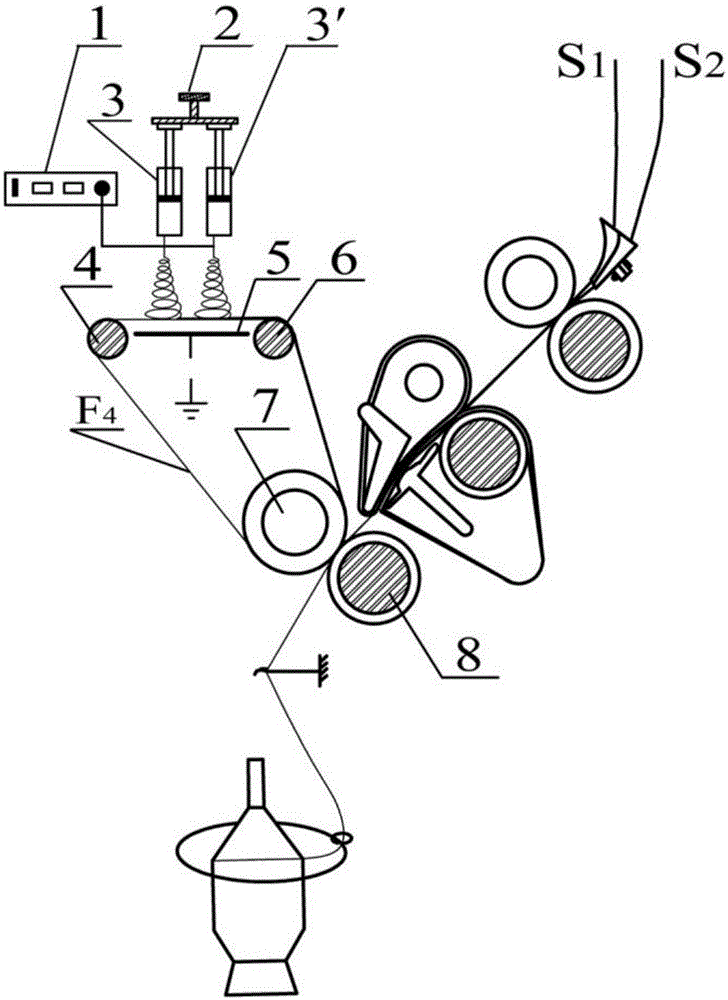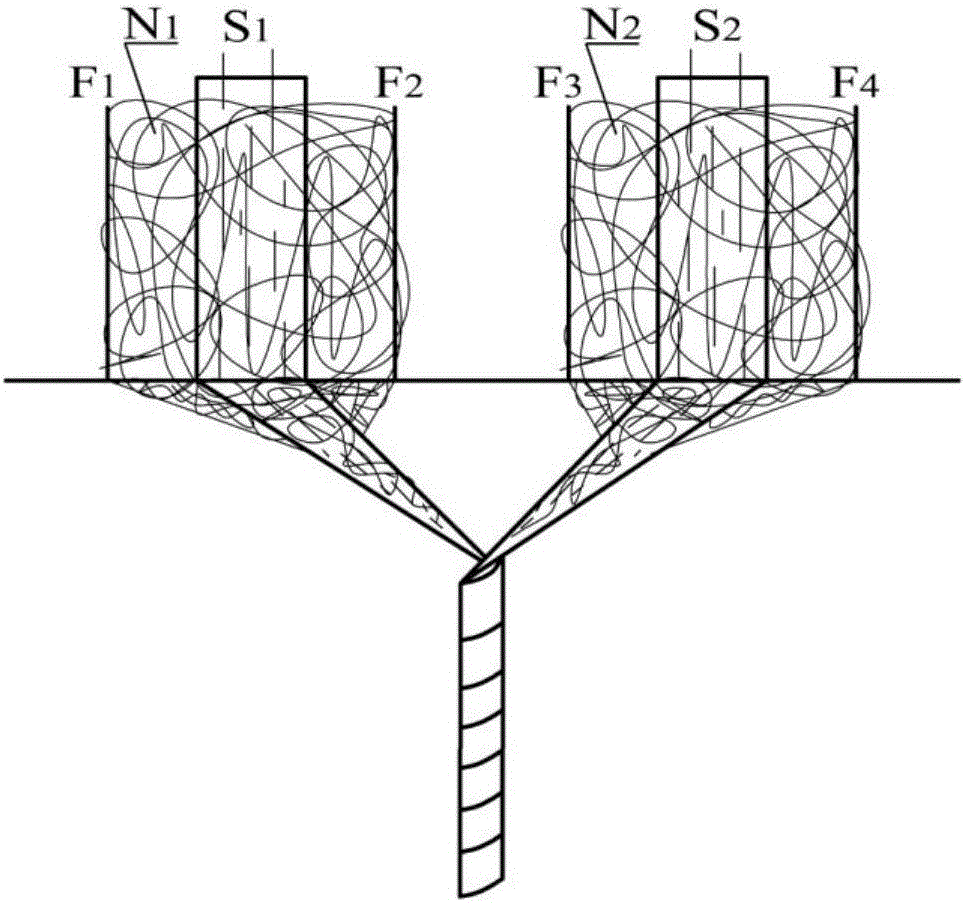Siro spinning method of nano-microscale reinforced short staple resultant yarn
A technology of siro spinning and short fiber, applied in the field of siro spinning, which can solve the problems of drafting difficulty, damage, poor yarn quality, etc.
- Summary
- Abstract
- Description
- Claims
- Application Information
AI Technical Summary
Problems solved by technology
Method used
Image
Examples
Embodiment Construction
[0012] A siro-spinning method of the present invention for forming nano- and micro-scale reinforced short fibers into yarns will be further described in detail with reference to the accompanying drawings.
[0013] see Attachment.
[0014] Aiming at the technical problems of insufficient cohesion between fibers and the production of high-function and high-quality nano-yarns that have not yet been realized by nano-fibers during conventional short-fiber siro spinning, the present invention adopts each drafting mechanism of the ring spinning frame, from the roving The two short-fiber rovings unwound from the bobbin are respectively fed into the rear roller, rear top roller, middle roller, middle and lower apron, middle and upper apron, front roller 8, and front top roller through two bell mouths respectively. The drafting mechanism composed of 7 is drafted into short fiber sliver S1 and short fiber sliver S2, and short fiber sliver S1 and short fiber sliver S2 enter the front roll...
PUM
 Login to View More
Login to View More Abstract
Description
Claims
Application Information
 Login to View More
Login to View More - R&D
- Intellectual Property
- Life Sciences
- Materials
- Tech Scout
- Unparalleled Data Quality
- Higher Quality Content
- 60% Fewer Hallucinations
Browse by: Latest US Patents, China's latest patents, Technical Efficacy Thesaurus, Application Domain, Technology Topic, Popular Technical Reports.
© 2025 PatSnap. All rights reserved.Legal|Privacy policy|Modern Slavery Act Transparency Statement|Sitemap|About US| Contact US: help@patsnap.com


